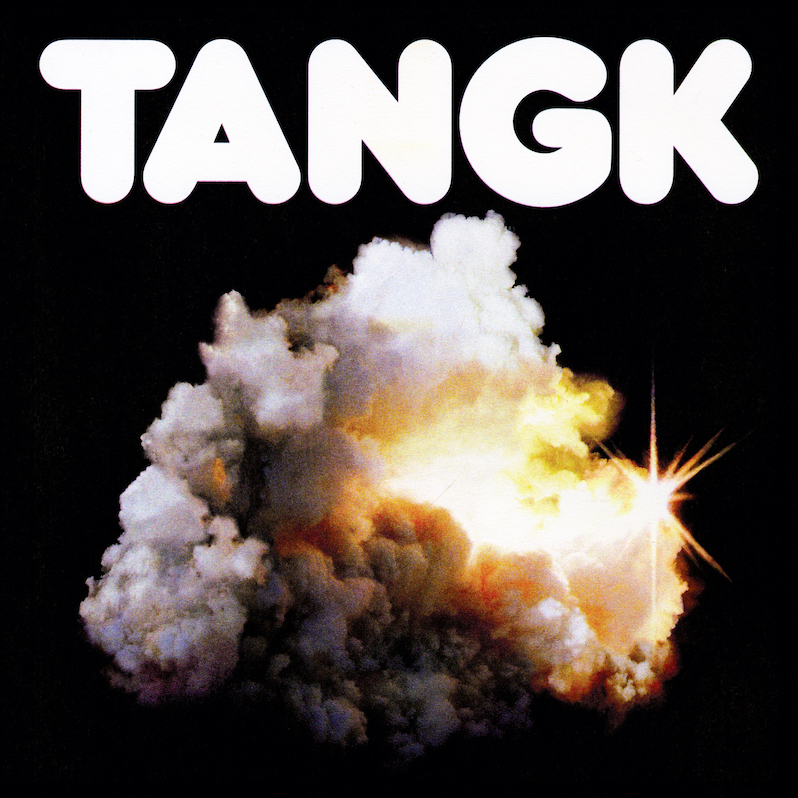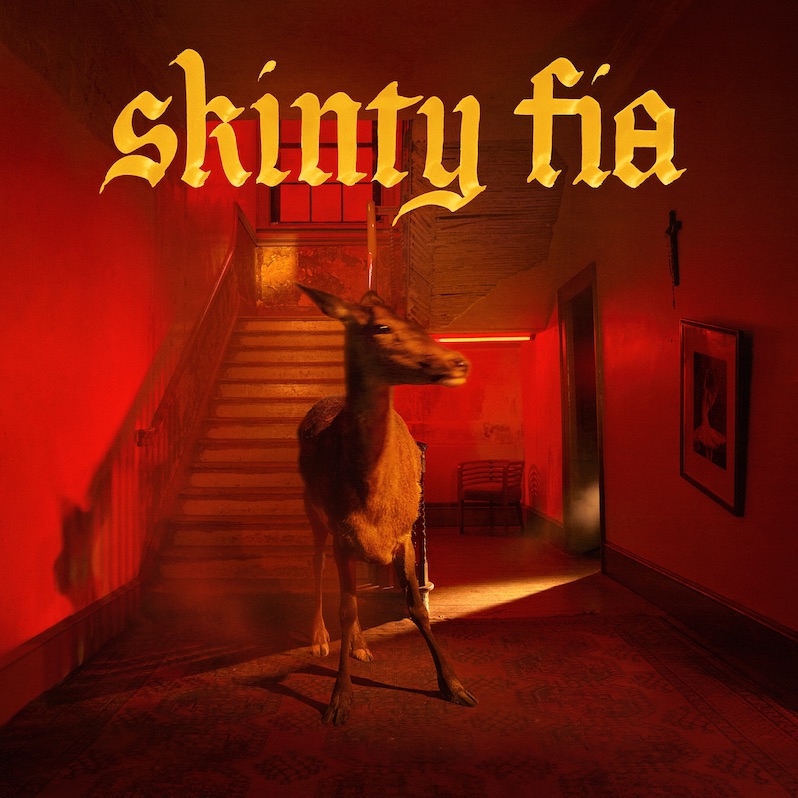Idles : TANGK

It’s not much of a stretch to say that the primary focus of TANGK, the fifth full-length LP from Idles, is to spearhead the reinvention of the love song. Indeed, as vocalist Joe Talbot told Kerrang, TANGK is composed exclusively of love songs, and in the same way that the sounds of their new record seem to reflect the band’s desire to expand beyond the frontiers of the post-punk label that they didn’t entirely take to in the first place, the album’s lyrical themes are ones that push back at the idea that a love song need necessarily deal with romance. There’s a lot of ground covered within these 40-odd minutes; romantic love is there, of course, but so is fraternal love, so is the love for complete strangers, and so is a general love for life, for the world we live in, and for how lucky we are to be born in the right time and place to be granted the opportunity to do things that make our hearts swell with happiness, like, for example, listen to music by Idles.
The diversity of music on TANGK is just as important—perhaps more so—than the diversity of concepts. Indeed, it’s their first album that you might struggle to file under any consistent definition of “rock.” “Roy,” for example, is a song whose chorus feels heavily soul influenced—something that, with its impassioned wailing of “baby!” before settling on “I’m a smart man, but I’m dumb for you,” gives every impression of a hook lifted straight out of a Billy Ocean song—if not for its clattering, industrial bassline, and shuddering, reverberating synth that throbs almost menacingly beneath its lovelorn proclamations. “POP POP POP,” with Talbot’s loping delivery over warm, synth hums, evokes something closer to hip-hop than the band’s usual wheelhouse, whilst “Jungle,” building with ever more tension to a momentous conclusion, feels like it even could be a film score. It’s certainly true that there’s an absence of snarling, punk rock immediacy on this record—there’s no real analogue to the white-hot adrenaline rush of “Never Fight A Man With A Perm” from Joy As An Act Of Resistance, for example. But Idles have traded in the short, sharp, punk-rock-punches for a sort of sonic playfulness that goes beyond just dipping their feet into different genres. The band have approached their instruments with the attitude of a conductor to their orchestra, and the results are impressive in their ambition, treating us across the album to the guttural as well as the gorgeous.
What is striking about Tablot’s lyrics and delivery is that they can occasionally be so straightforward that you have to keep reminding yourself that he isn’t joking. There’s no semi-ironic wink at the audience here; “I love my man,” from “Hall & Oates,” is a line spoken in utter sincerity; when Talbot says “gratitude cuts through my veins,” in “Gratitude,” he truly means it, despite the groaning, dirty, punky instrumentation used to drag us to that point in the first place. Despite the album’s undeniably good intentions, moments like this can create a shred of dissonance, although its hard to discern whether that’s a criticism of the music itself, or the culture that we and it exist within. After all, why should an expression of love be considered less believable—less valid—just because it’s couched in a heavier, more assertive, and perhaps more distinctly masculine form of sonic architecture? Not everyone feels comfortable expressing feelings of love via the standard glitter-and-rainbows affair that’s seized the monopoly over our Valentine’s Day cards, and Talbot is opening up a valuable space for these people who may otherwise feel alienated from communicating the most fundamental and essential human emotion imaginable.
Then again, Talbot surely has some obligation to meet us in the middle simply to engender smooth communication. The lyrics don’t always elucidate authorial intent; “Roy” seems at first glance quite dark, describing what sounds an awful lot like an abusive relationship—lines like “if I pummel and maim / If I piss up the drain / Will you hear? / If I pull at your hair / Scream bloody air / Come near” don’t do much to inspire a loving feeling of any flavor. Well, the song is actually about “a surrender to infatuation and the way such an act can steel you from self-doubt, even making you feel immortal,” according to the album’s press release. One feels you could be forgiven for thinking otherwise.
It’s an odd dilemma. But maybe the solution lies hidden in plain sight—in the word TANGK, the album’s very title. TANGK is the band’s word to describe the sound of a guitar—onomatopoeia expressing not a word, but music, there perhaps as a guide to how the album ought to be approached—as a feeling, a force, a truth that by definition escapes rationality and can only be felt in the moment. Or, to put it another way, don’t think about it so much.
Label: Partisan
Year: 2024
Similar Albums:
Idles : TANGK
Note: When you buy something through our affiliate links, Treble receives a commission. All albums we cover are chosen by our editors and contributors.




